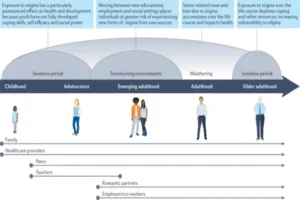Rising Above: Taking Control of Your Personal Finances

Money management can be intimidating, but with the correct strategy, you can regain control of your personal and family finances and establish a secure future. Budgeting tools such as the Albert App can assist you in tracking spending, saving money, and making sound financial decisions. Adopting a systematic financial strategy may help you overcome financial stress.

Step 1: Analyze Your Financial Situation
To make a financial plan and properly manage your funds, start by evaluating the following:
· Monthly income (wage, side jobs, or passive income)
· Fixed costs (rent, mortgage, and utilities)
· Variable costs include groceries, entertainment, and shopping.
· Debt (loan, credit card)
Tracking your income and spending regularly keeps you in control of your finances.
Step 2: Creating a Workable Budget
A well-structured budget allows you to manage your money successfully. Organize your spending into two categories:
· Fixed Expenses: Those that stay constant (for example, rent, vehicle payments).
· Variable Expenses: These change (for example, dining out and shopping).
A budgeting program like Mint may help you track your expenditures and adjust as needed.
Example Budget Breakdown (Based on $4,000 Monthly Income)
| Category | Percentage of Income | Suggested Amount ($) |
| Housing (Rent/Mortgage) | 30% | $1,200 |
| Savings & Investments | 20% | $800 |
| Debt Payments | 15% | $600 |
| Fixed Expenses | 15% | $600 |
| Variable Expenses | 10% | $400 |
| Entertainment & Misc. | 10% | $400 |
Regularly assessing your budget can help you remain on target and make required modifications.
Step 3: Developing Smart Saving Habits
Saving should be prioritized. Setting financial goals and objectives promotes long-term stability, whether for an emergency fund, retirement, or investing.
How To Save Money Effectively
· Open a savings account to keep your money distinct from other bills and regular expenditures.
· Set up automatic contributions to your bank account to guarantee regular savings.
· Take advantage of student discounts and other money-saving options.
· Reduce needless expenses by identifying non-essential products.
Smart savings can provide a financial buffer and help you achieve your long-term savings goals.
Step 4: Managing Debt Wisely
Debt can be overwhelming, but it can be managed effectively with the right strategies.
How to Pay Off Debt Faster
· Make more than the minimum payments on credit cards and loans.
· Refinance the purchase at a lower interest rate to lessen overall payback.
· Consider debt consolidation to make payments more manageable.
· Make lump-sum payments with additional money (bonuses, tax refunds).
Reducing debt increases financial security and independence.
Step 5: Expanding Your Wealth Through Investments
Investing is critical for increasing wealth. Investment banking and stock market methods can help to grow assets over time.
Tips for Beginners in Investment
· Before investing, determine your level of risk tolerance.
· Stocks, bonds, and mutual funds can help to diversify your portfolio.
· Make tiny donations automatically using investing applications.
· Start early to capitalize on compound interest.
Investing helps you protect your financial future while allowing your money to grow.
Step 6: Cut Expenses without Giving Up Fun
Saving money does not imply giving up all of your favorite activities. It’s about making more informed financial decisions.
Ways to Reduce Costs Without Feeling Deprived
· Budgeting tools can help you keep track of wasteful expenditure.
· Take advantage of cashback apps to save extra money on daily shopping.
· Using energy-efficient equipment can help to lower your electric expenses.
· To reduce underutilized services, reevaluate subscriptions.
Finding the difference between desires and necessities can help you save more money without sacrificing quality of life.
Step 7: Planning for Retirement and Future
Retirement planning is essential to a comprehensive financial strategy. Even tiny gifts today can have a big impact.
Retirement Planning Tip
· Contribute to a 401(k) or IRA to receive tax breaks.
· Every time you get a rise, increase your donations.
· Employer matching programs might help you build your retirement savings more quickly.
· Review your retirement plan frequently to keep on track.
· Starting early assures you will have enough money to live well in retirement.
Step 8: Get Professional Financial Advice
Consulting with a financial specialist can sometimes provide helpful advice. A financial professional can assist you with investment management, debt reduction, and retirement planning.
When to Seek Financial Advice
· While having trouble repaying most people’s debts and need help
· Planning major expenditures such as a house or a car
· Interested in optimizing investments for optimum returns
· Planning for long-term success also necessitates a customized financial strategy
A financial specialist can provide tailored solutions depending on your specific situation.

FAQs
1. How can I begin budgeting?
Begin by classifying your spending as fixed or variable costs. Tools like Mint and the Albert App can assist you in tracking your expenditures and making adjustments as needed. Regularly assessing your budget helps you remain on track and make sound decisions.
2. How can I most efficiently save money?
Open a separate savings account, set up automatic payments, and cut back on frivolous expenses. Look for discounts, use cashback applications, and concentrate on long-term savings objectives such as emergency fund building or retirement planning.
3. What can I do to pay off my debt faster?
Pay more than the minimum, refinance at a reduced interest rate, or combine your obligations. Also, utilize additional cash, such as tax returns or bonuses, to pay down debt faster. The sooner you wipe off debt, the more financial independence you’ll have.
Final Thoughts: Controlling Your Finances
Taking care of your finances is about progress, not perfection. Following these steps allows you to:
· Create a planned budget
· Save and invest wisely
· Efficiently reduce debt
· Plan for a solid financial future
Begin today and take charge of your financial condition; your future self and family will thank you!
Surfer: https://app.surferseo.com/drafts/s/WD-ulKQB95M1SkuoAEL56fO5a6XWbY6h
Plagiarism report: https://i.ibb.co/cmrYfd6/image.png







